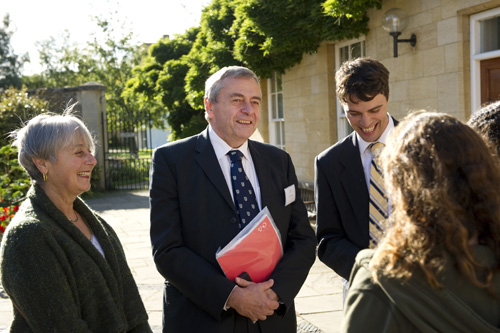
Professor Sir David Watson (MA University of Cambridge, PhD University of Pennsylvania) is Professor of Higher Education and Principal of Green Templeton College, אוניברסיטת אוקספורד, אנגליה. Sir David began his career as an intellectual historian. He has contributed widely to developments in UK higher education. He chaired the UK’s Inquiry into the Future for Lifelong Learning, and co-authored its report, למידה דרך חיים. He was knighted in 1998 for services to higher education. ב 2009, he received the Times Higher Education Lifetime Achievement Award. I had the opportunity to get Sir David’s views on higher education and a life of learning.
What kind of education system will permit a country to have the human skills needed to compete globally?
It seems to me that the key requirement of a modern society is a fluid, accessible and responsive system of tertiary and lifelong learning. Foundations in compulsory education are clearly essential, and universal access to primary education has been correctly identified as a United Nations Millennium goal. עם זאת, there is now global recognition that full participation in modern life requires continuing education.
ב 2008-2009, I was privileged to chair a Commission on the Future of Lifelong Learning in the UK. In our report, למידה דרך חיים, we began from the premise that “the right to learn is a human right, connected with personal growth and emancipation, שגשוג, group and community solidarity, as well as global responsibility.” לאחרונה, the third annual Emerging Markets Symposium at Green Templeton College (in January 2012) identified tertiary education as both a “condition of sustained and equitable economic growth” and a vital element in creating the conditions for a satisfactory and responsible national life.
What are your views about standardized tests and the university admissions process?
I am not an expert on testing in schools. אני am a believer in self-study and benchmarking, from a variety of perspectives, ranging from the needs of individual learners and those who support them (including their families) to the institutions in and through which they study. Sensible, nuanced understanding of how I (and we) are doing is a vital element of any attempt to “manage the future” in personal or institutional terms.
בינתיים, מסביב לעולם, qualifications for university entrance vary in type and demand. We have established in the UK that where and how such qualifications are earned can disguise both achievement and potential. If this is not fully appreciated, a kind of brittle, meritocratic discourse can hinder the role of higher education in assisting social mobility and advancing social justice.
כתוצאה מכך, I have real concerns about the “moral panics” that surround university admissions. In the UK we talk about “widening participation” as if it is the same as so-called “fair access,” ו vice versa. The two are logically separable phenomena. The first – getting more students qualified and to the starting gate – is a big problem in both developed and developing societies. The second – where they choose to apply, and are admitted – is a comparatively tiny problem. Merging the two can also lead to empirically weak and socially patronizing conclusions. Well-qualified students with disadvantaged backgrounds who choose non-standard routes through the system are often making rational and life-enhancing decisions.
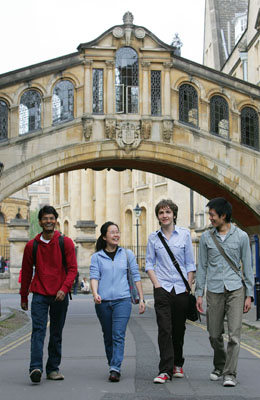
Is there sufficient focus on critical thinking in today’s education system?
What makes higher education special is its facilitation of conversations between more and less experienced learners. A degree of independence and self-confidence is vital. In this context I see a number of encouraging things.
The public discourse is heavily dominated at present by a perception (whether welcomed or deprecated) of student instrumentalism. What counts is “תעסוקה” (even more than “תעסוקה”) and whether or not students are prepared for it. בינתיים, students themselves confound expectation further: by returning to the liberal arts, by returning to volunteering (even while they simultaneously have to work much more frequently for money than their predecessors), and by reviving student-led political activism (all around the world).
What can be done to better address the emotional and intellectual potential of the individual?
I am currently working on a project about “transformation claims” made by and for higher education. I am intrigued by how varied these claims have been over the long history of the higher education enterprise, but also by how strong and determined they invariably are. Essentially my argument is that such claims represent a moving combination of recurrent themes, nearly all present at the creation of the modern university, and liable individually to wax or wane according to mainly (but not exclusively) external influences.
Most of the claims about the purposes and achievements of higher education are irreducibly individualistic: it will change your life, through conversion or confirmation of faith, by improving your character, by giving you marketable “יכולות,” by making you a better member of the community, or simply “בעל יכולת” of operating more effectively in the contemporary world. All of these qualities scale up, כמובן, but in differing ways.
קודם כל, the historical perspective is important. Almost all higher education institutions were founded, and invested in by particular communities and their representatives to serve social purposes. Success in higher education has, of course always represented a private good and normally a “positional” advantage. עם זאת, it has also always incorporated and resonated with the concept of “public good.”
שנית, a trap to avoid is that of cultural specificity. In the course of a recent global investigation, set out in our book האוניברסיטה עוסקת, my colleagues and I found strong evidence of universities in the South and East doing more with less than those in the relatively privileged North and West (Routledge, 2011). I perceive a stronger sense of societal pull (over institutional push) in terms of the universities in that part of the world. Too often European (including British) and North American universities can rest on their laurels, and think that they can achieve their goals just by “being there.”
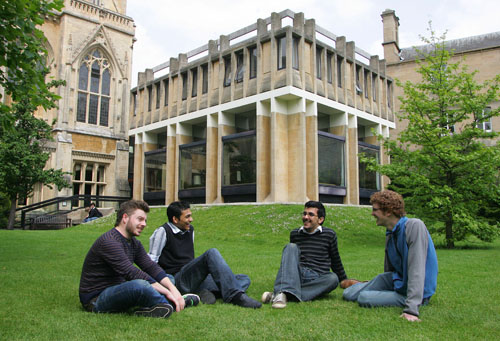
From a broader perspective does your country’s definition of educational excellence take into account the quality of life of individuals and of society?
The evidence is strong from the UK that those members of society who have had a positive experience of post-compulsory education live healthier, happier and more democratically tolerant lives.
מעל לכל, as we argued in למידה דרך חיים, a successful learning life-course improves your chances of taking control of your destiny.
What needs to be done to increase students’ knowledge and understanding of other countries and cultures?
Nearly all university campuses are now “global.” Probably most important is the fact that the university campuses in the UK (and I suspect in some other countries) are ahead of the wider community in demonstrating ethnic, cultural and national diversity. In the UK at present, a majority of Higher Education Institutions now has students from over one hundred countries and several have a majority who are bi-lingual. Paul Ramsden, former head of the Higher Education Academy in the UK, has spoken about “intercultural fluency” כ “central goal of every higher education curriculum.” Universities taking up this challenge will often find that they are following – not leading – their student bodies.
Does higher education (in Martha Nussbaum’s ringing phrase) “cultivate humanity”? The simple answer has to be that it can; that it doesn’t necessarily do; and that there are other honorable ways of achieving the same end. זה, עם זאת, אני מאמין, generally good at this important job.
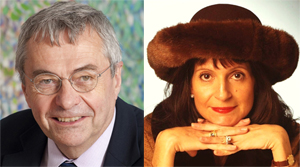
Photos courtesy of PA Photocall and Green Templeton College, אוניברסיטת אוקספורד.
בגלובל החיפוש לחינוך, להצטרף אליי ולמנהיגי מחשבה מוכרת בעולם כולל סר מייקל ברבר (בריטניה), DR. מיכאל בלוק (ארה"ב), DR. ליאון בוטשטיין (ארה"ב), DR. לינדה דרלינג-Hammond (ארה"ב), DR. Madhav אוון (הודו), פרופ 'מיכאל Fullan (קנדה), פרופ 'הווארד גרדנר (ארה"ב), פרופ 'איבון הלמן (הולנד), פרופ 'קריסטין Helstad (נורווגיה), ז'אן הנדריקסון (ארה"ב), פרופ 'רוז Hipkins (ניו זילנד), פרופ 'קורנליה הוגלנד (קנדה), גברת. שנטל קאופמן (בלגיה), פרופ 'דומיניק לפונטיין (בלגיה), פרופ 'יו לאודר (בריטניה), פרופ 'בן לוין (קנדה), פרופ 'בארי McGaw (אוסטרליה), פרופ 'R. נטריגין (הודו), DR. דניז אפיפיור (ארה"ב), שרידהר ךאג'גופלן (הודו), DR. דיאן ראוויטש (ארה"ב), סר קן רובינסון (בריטניה), פרופ Pasi Sahlberg (פינלנד), אנדריאס שלייכר (PISA, OECD), DR. אנתוני סלדון (בריטניה), DR. דוד שפר (ארה"ב), DR. קירסטן Immersive Are (נורווגיה), קנצלר סטיבן ספאן (ארה"ב), איב Theze (Lycee Francais ארה"ב), פרופ 'צ'רלס Ungerleider (קנדה), פרופ 'טוני וגנר (ארה"ב), פרופסור דילן Wiliam (בריטניה), DR. מארק Wormald (בריטניה), פרופ 'תיאו Wubbels (הולנד), פרופ 'מייקל יאנג (בריטניה), ופרופ 'Minxuan ג'אנג (סין) כפי שהם לחקור שאלות חינוך תמונה הגדולות שכל המדינות מתמודדות היום. גלובל החיפוש לחינוך עמוד קהילה
C. M. רובין הוא המחבר שתי סדרות מקוונות רבים קוראות שלהיא קיבלה 2011 הפרס אפטון סינקלר, “גלובל החיפוש לחינוך” ו “איך וויל אנחנו קראו?” היא גם מחברם של שלושה ספרים רבי מכר, כולל אליס בארץ הפלאות Real.
עקוב C. M. רובין בטוויטר: www.twitter.com/@cmrubinworld


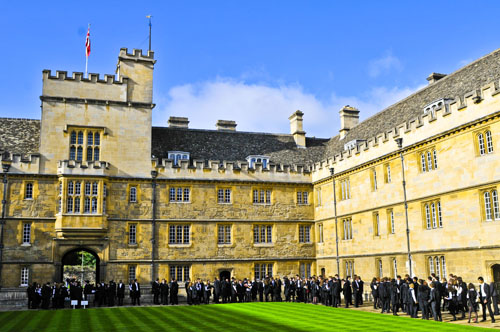
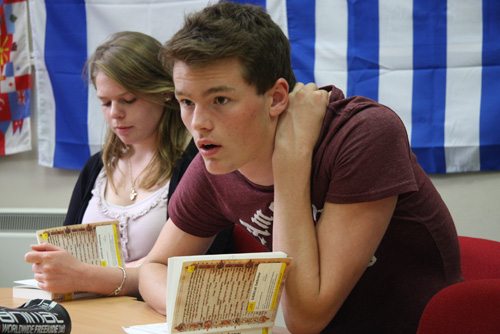

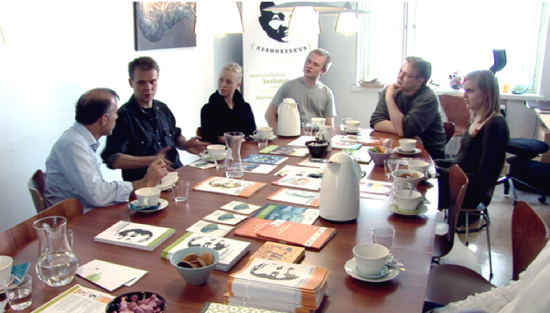
תגובות אחרונות